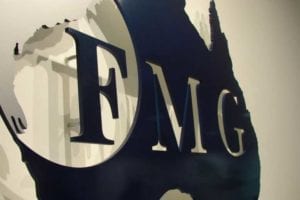From the desk of Tony Kynaston:
In yesterdays QAV podcast [episode 310] I mentioned that there is a difference between finding a good company and finding a good investment.
This followed on from a conversation we had with Jackson and Ricky from the Sydney Superinvestors club (coming up in episode 311) where I asked them for their top stock tips.
Firstly, good on these two guys for taking an active interest in value investing at a young age and for being organised enough to put their club together. It is a credit to them.
The two stocks that were nominated were Seek and Cochlear. Both excellent companies with bright futures.
However, are they good value investments? I suspect that investing in either company will make money over time, the question is will we get “super investor” style returns from buying shares in these companies?
I don’t think so, and here is why.
One of our interviewees made the comment that ”value and growth” are joined at the hip. The problem is that neither value or growth are present in Seek or Cochlear. They need a hip replacement.
Value and growth have been in the past for these two stocks, very strong growth, but currently (and I don’t mean because of Covid19), the growth rates are down on both of these companies.
Here are the numbers:
COH Dec19 eps growth 0.76%
SEK Dec19 eps growth -28.72%
Compare this to Fortescue Metals Group (see article) where growth was 490%.
The price-to-operating cashflows for these stocks based on their Dec 19 numbers and using current prices are:
COH 47.5 times
SEK 15.13 times
FMG 3.67 times
Now I know that Fortescue is a cyclical stock and that it won’t continue to grow forever. No tree grows to the sky. I will use my 3 point trend lines to exit this stock when necessary. I think in the case of some of the long term growth darlings in the market, however, this point has been lost.
Both COH and SEK have had periods of high growth about 10 years ago where there eps growth was well into the double digits consistently. The question is, though, have they matured and do they deserve continued high multiples? If value and growth are joined at the hip, then the answer is, No.

